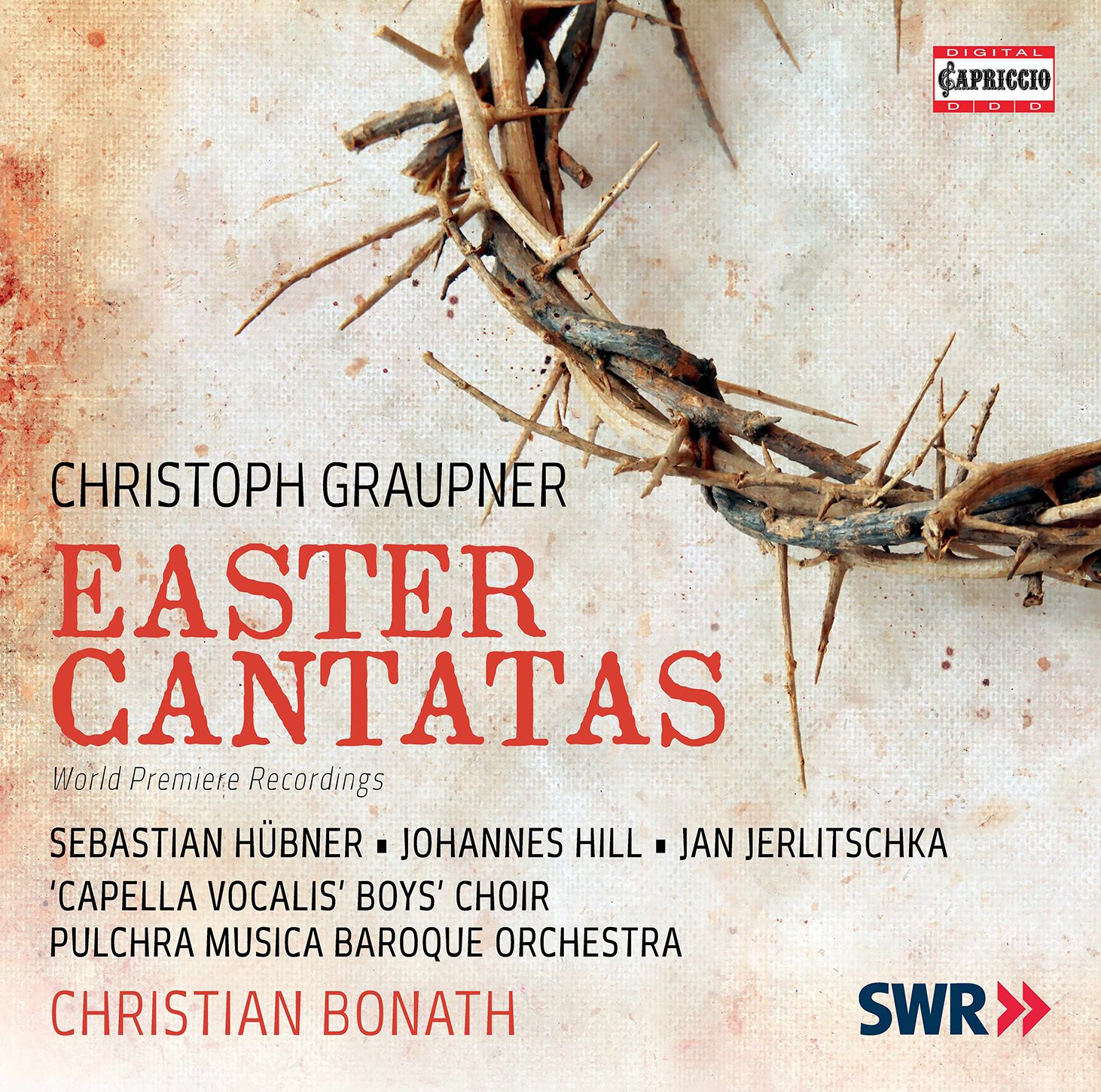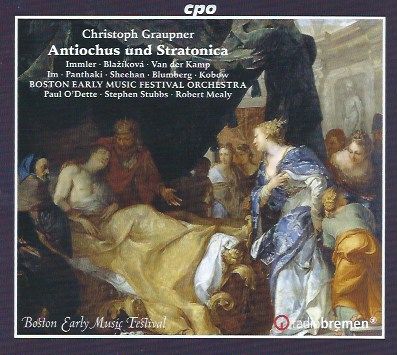More Graupner! Cantatas (and an opera)
Two beautifully complementary releases then, revealing different sides of this fascinating composer.

Previously, we met Christoph Graupner (1683-1760) via some "bassoon cantatas". Since then it has (metaphorically) been raining Graupner. Today we have some Easter Cantatas on the Capriccio label, but we're also mentionng a recording of an opera, Antiochus und Stratonica, on cpo.
In 1711, Graupner was appointed court conductor at Darmstadt (the court fo Hesse-Darnstadt); thsi after he had held positions at the Hamburg opera and studied with Johann Kuhnau, at the time Cantor of the Thomasschule in Leipzig. Hew was to remain at Darmstadt for the rest of his life, and his focus there was on liturgical music. In fact, he composed some 1400 cantatas.
All pieces on the Easter Cantatas disc are World Premieres. They create an arc from Maundy Thursday through to Easter Monday (cantatas for Thirsday, Friday, Easter Sunday and Easter Monday).
The Cantata for Holy Thursday, Die Frucht des Gerechten (1733: "The Fruit of the Righteous" - NB English translations of texts are not included). The bass aria is particularly interesting, quoting the Chorale "Wie schön leuchtet der Morgenstern" and well sung here by Johannes Hill:
The Cantata for Good Friday begins with a Chorale for five voices (five representing the five wounds of Christ on the cross):
As you can hear, it is a chorale of the utmost depth. Heresy probably to suggest it equals the Bach Passions, but the thought did cross my mind. In fact this entire cantata is on another level, and the performance here fully reflects that; tenor Sebastian Hübner's delivery of the "Accompagnato," "Mein Bräutigam," is a masterclass in how to elevate text, while Johannes Hill once more shines in his aria "Ich will mit Jesu gerne sterben" But let's hear that accompagnato I raved about:
The third Cantata, Der Sieg ist da, begins with wonderfully bouncing rhythms, almost Haydnesque in demeanour, in what is probably one of the the happiest Baroque choruses; it is also spoectacularly well constructed:
Here the highlight is surely the bass aria "Jesus Sieg," Hill again on superb form:
Graupner's way with chorales is highly individual and utterly magnificent. We've already heard one example. here's the closing chorale of the third cantata here. Listen to those agile, inventive string parts against the chorale! (the thrid cantata celebrates teh joy of resurrection):
The cantatas here are skewed towards the lower end of the vocal range, with the lion's share going to tenor and bass. There is a little more for the alto in the final cantata of the series, Ihr werdet traurig sein, and just how beautiful is the alto/bass duet "Ach Zions Hoffnung": the excellent Sebastian Hübner is the alto soloist here in this music written in the stile antico (0ld style):
This final cantata is arguably the most sophisticated emotionally and musically. It deals with conflicting emotions. And while the bass aria with violin obbligato "Lass nur Güldnes Aug'" is spectacular, it is the central chorus "Bleibe bei uns" (which uses the same text as Rheinberger's famous Abendlied) that truly touches:
We should remember that Graupner was first choice for the cantor at St Thomas' at one point (1723) but his patron would not release him and they took the second in line - a certain Johann Sebastian Bach. This is a major release, although some might find the recording a little swimmy (you can judge for yourself from the excerpts above).
I just want to briefly mention here that recording of the opera Antiochus und Stratonica by the Boston Early Music Festival Orchestra. Written in 1706 (and therefore when Graupner was in Hamburg) to a libretto by Barthold Feind, this offers anotehr side of Graupner. The exuberance of melody, the lightness of touch, shows this composer as as far from mono-dimentional as can be imagined. Although this is currently available (see Amazon link below), YouTube and Spotify excerpts seem curiously absent; but the cast is impeccable, the playing superbly informed, and the box includes a full libretto with translation.

Two beautifully complementary releases then, revealing different sides ofthis fascinating composer.
